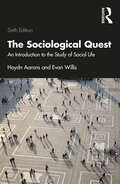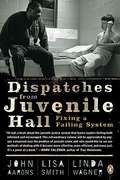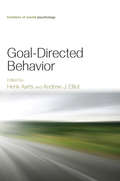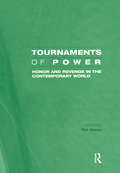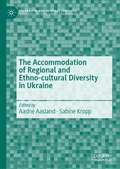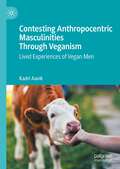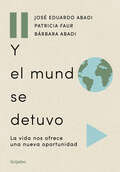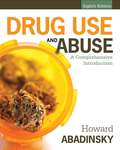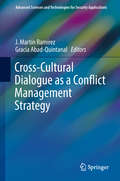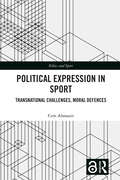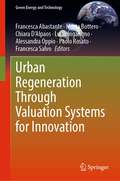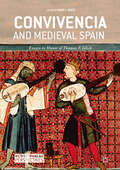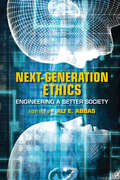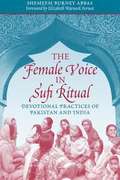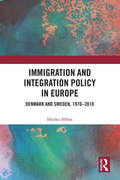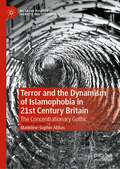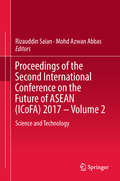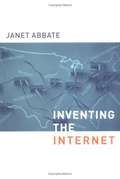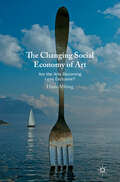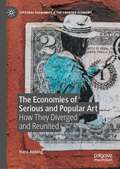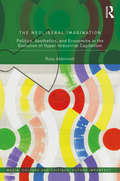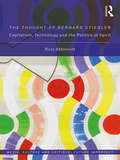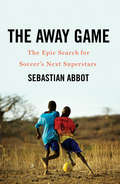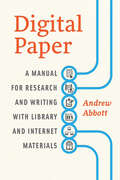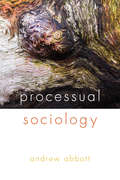- Table View
- List View
The Sociological Quest: An Introduction to the Study of Social Life
by Haydn Aarons Evan WillisStarting Sociology can be daunting. This user-friendly introduction takes the reader on a quest towards a sociological understanding of the world we live in. Using contemporary examples, The Sociological Quest asks what is distinctive about the way Sociologists view society. Haydn Aarons and Evan Willis show that they are concerned with the relationships between the individual and society, and that a sociological analysis involves an approach which is historical, cultural, structural, and critical. This sixth edition has been thoroughly revised and updated and includes new material on identities, social change, social movements, populism, climate change, the COVID-19 pandemic, digital interaction, and social media. Also included in the sixth edition is an expanded chapter on empirical research in Sociology and the research process, as well as a new chapter on careers in Sociology.
Dispatches from Juvenile Hall
by John AaronsA revolutionary book that offers a fresh, bold approach to confronting the juvenile crime epidemic With the rise of violent crimes committed by teenagers in recent years, heated discussion has arisen over the societal factors that lead to juvenile criminality and the ways that public institutions are failing to curtail them. Now a team of experts with decades of collective hands-on experience present a book that cuts through the hype and paranoia to offer real solutions. Drawing on actual case studies, Dispatches from Juvenile Hall shows how conventional ?tough on crime? tactics have only worsened the problem, and presents a new blueprint for change that incorporates punitive action, rehabilitation, and family intervention?a progressive program that will encourage and enlighten all those concerned about the future of our youth. .
Goal-Directed Behavior (Frontiers of Social Psychology)
by Henk Aarts Andrew J. ElliotThis volume presents chapters from internationally renowned scholars in the area of goals and social behavior. The book is organized around a series of topics that are of critical importance to understanding the social-cognitive aspects of goal-directed behavior. In each chapter, the authors offer an introduction to past research on a specific topic and combine this with a presentation of their own empirical work to provide an integrated overview of the topic at hand. As a whole, this volume is designed to provide a broad portrait of goal research as it has been and is currently being conducted in the social psychological literature. It serves as an introduction to essential issues, while at the same time offering a sampling of cutting-edge research on core topics in the study of goal-directed behavior, such as how goals are represented, where goals come from, and what goals do in the process of regulation.
Tournaments of Power: Honor and Revenge in the Contemporary World
by Tor AaseThirty years ago, modernization theory contended that notions of honor would become obsolete in modern democracies. Being an archaic remnant of our pre-modern past, honor would be substituted by dignity under modern conditions. When honor does emerge as a valid social theme in modern society, as it sometimes does during court hearings, in gang fights, and in violent reactions to insult, it is often ascribed to immigration from pre-modern cultures where honor still matters in social life. Thus honor becomes part of the cultural baggage that is transfered to the host country through migration. However, the fact that highly modern social formations like MC gangs are also obsessed with honor seriously questions the validity of classical modernization theories. It seems that honor is not just a pre-modern weed in a modern garden of dignity, but an integral part of modernity. Since honor emerges under pre-modern as well as under modern conditions, it is relevant to ask under which circumstances it becomes a theme in interaction. Blurring the distinction between the modern and the pre-modern in this manner allows us to ask what honor is really all about. Containing a wealth of international contributions from Scandinavia, USA, Mexico, Kurdistan, Indonesia, Pakistan, Sri Lanka and Japan, Tournaments of Power provides first-hand ethnographic accounts and important answers to these vital questions.
The Accommodation of Regional and Ethno-cultural Diversity in Ukraine (Federalism and Internal Conflicts)
by Aadne Aasland Sabine KroppThe book offers new insights into how ethnicity, language and regional-local identity interact within the context of Ukrainian political reform, and indicates how these reforms affect social cohesion among ethno-cultural groups. While the individual chapters each focus on one or a few facets of the overall research question, together they draw a nuanced picture of the multifaceted challenges to creating and consolidating social cohesion in a nationalizing state. The concept integrates various disciplines, including political science, international relations, law, and sociology. Correspondingly, the contributions are based on various methodological approaches, ranging from legal analysis over media discourse analysis, individual and focus group interviews to analysis of data from a representative population survey. The findings of the in-depth study are discussed within the broader context of comparative research on diversity management and social cohesion in fragmented societies.
Contesting Anthropocentric Masculinities Through Veganism: Lived Experiences Of Vegan Men
by Kadri AavikThis book explores the potential of men’s veganism to contest unsustainable anthropocentric masculinities. Examining what it means to be a vegan man and connections between men, masculinities and veganism addresses exploitative human-animal relations, climate change, and social inequalities as urgent and interconnected global issues. Using conceptual insights from critical studies on men and masculinities, ecofeminism, critical animal studies and vegan studies, this book examines the potential of men’s veganism and vegan masculinities to foster more ethical, caring and sustainable ways of relating to nonhuman animals and to contribute towards more egalitarian gender relations. This book is grounded in a qualitative empirical study of the lived experiences of 61 vegan men in Northern Europe. The themes explored include men’s transition to veganism, the emotional and embodied dimensions of men’s veganism, negotiating social and intimate relationships as vegan men, and links between men’s veganism, gender equality and social justice.
Y el mundo se detuvo: La vida nos ofrece una nueva oportunidad
by José Eduardo Abadi Patricia Faur Bárbara AbadiLos psicoanalistas José Eduardo Abadi, Patricia Faur y Bárbara Abadi analizan esta época donde todo se resignifica: el amor, la muerte, la información, los vínculos y hasta el poder político. Los autores hacen un gran aporte a esta nueva oportunidad de vivir en un mundo que se detuvo, pero está volviendo a arrancar. La pandemia puso al mundo patas para arriba, lo que significó, y aún lo hace, un antes y un después en nuestra vida. Todo cambió de un día para el otro: dejamos de ir a trabajar, de ver a nuestros familiares y amigos, se suspendieron las clases de los chicos, no pudimos despedir a seres queridos que fallecieron. Nos quedamos sin parámetros cotidianos, sin nuestra rutina y nuestros rituales. Paulatinamente, el confinamiento se fue flexibilizando mientras avanza la campaña de vacunación, si bien las consecuencias de estos tiempos son, como el virus, invisibles y aún no las podemos percibir. Los psicoanalistas José Eduardo Abadi, Patricia Faur y Bárbara Abadi despliegan su experiencia para desentrañar y echar luz sobre una época donde todo se ha replanteado: el amor, la muerte, la información, el vínculo con los hijos y hasta el poder político. Con una gran capacidad de observación y análisis, los autores hacen un aporte fundamental para esta nueva oportunidad de afrontar la vida en un mundo que se detuvo, pero está volviendo a arrancar.
Drug Use and Abuse: A Comprehensive Introduction (8th Edition)
by Howard AbadinskyPacked with the latest data and research, the powerful new DRUG USE AND ABUSE: A COMPREHENSIVE INTRODUCTION, 8e delivers a thorough, interdisciplinary survey of all aspects of drug and alcohol abuse. The text draws from the many disciplines of history, law, pharmacology, political science, social work, counseling, psychology, sociology, and criminal justice--resulting in the most comprehensive, authoritative single source available. It explores the history of drugs, their impact on society, the pharmacological impact of drugs on the body, drug policy implications, the criminal justice system response, the drug business, law enforcement, theories of use, as well as the effects, treatment, and prevention of abuse. New coverage includes nonmedical use of prescription drugs, synthetic substances, the use of stimulants to treat PTSD and ADD, medical marijuana, the connection between drug trafficking and terrorism, and an updated analysis of the United States drug policy.
Cross-Cultural Dialogue as a Conflict Management Strategy (Advanced Sciences and Technologies for Security Applications)
by Gracia Abad-Quintanal J. Martín RamírezThis book contributes to the current knowledge and research on conflict and cross-cultural dialogue, emphasizing how respect, tolerance and dialogue may be quite effective tools for bridging the diverse cultures and, consequently, for solving many of the conflicts of today’s world, characterized by a dynamic interchange of populations with very diverse cultural and ethnic backgrounds. For this purpose, we rely on reputed scholars from ten different countries, and from different cultures and fields of expertise, which allows for diverse contributions from a valuable interdisciplinary perspective. The first section of the book deals with the correlation between cultural differences and conflict, while also showing how such conflicts can be prevented and, should they arise, managed and solved. The second section addresses a different, more specific issue: how cultural expression means and tools for cultural communication may lead to conflict whereas they may help to avoid it as well. Finally, the third section analyzes how legal and justice systems deal with cross-cultural conflicts as well as with situations which may lead to cross-cultural conflicts, thus assessing to which extent such systems contribute to avoid and/or solve such kind of conflicts.
Political Expression in Sport: Transnational Challenges, Moral Defences (Ethics and Sport)
by Cem AbanazirThis powerful new book looks at how private institutions governing and organising sport restrict political expression. Uniquely, it makes a case for the freedom of expression for athletes, spectators and audiences built upon philosophical foundations. In the era of Colin Kaepernick and taking a knee, politics and protest in sport have never been more visible and immediate. Drawing on a wide range of international cases, including protest actions from athletes such as Tommie Smith and John Carlos, Naomi Osaka and Feyisa Lilesa, as well as the reactions from sport organisations including the IOC, FIFA, UEFA and the NFL, the book argues that the organisation of sport at the hands of associations and leagues and their transnational power to regulate, adjudicate and enforce matters according to their interests lead to the restriction of freedom of expression. Focusing on the individual, the book presents a framework for the defence of freedom of expression in sport on moral grounds and also explores the limits to freedom of expression, especially those arising from hate speech, that might better serve both the individual and sport as an institution. This book is fascinating reading for anybody with an interest in the ethics, philosophy or politics of sport, sport governance, the relationship between sport and wider society, or moral or political philosophy.
Urban Regeneration Through Valuation Systems for Innovation (Green Energy and Technology)
by Francesca Abastante Marta Bottero Chiara D’Alpaos Luisa Ingaramo Alessandra Oppio Paolo Rosato Francesca SalvoThis book examines the role of the evaluation models in decision-making processes for the construction of circular cities in the digital revolution. In particular, the book explores the need for a rethinking of development models proposed by the circular economy which requires the valorization of natural, social and economic capital. Urban environment represents a crucial field of analysis in which applying the circular-economy principles in order to steer a course towards a sustainable economy characterized by processes meant to create value instead of extracting it, which put a step forward in the pathway towards a better future in terms of economic, environmental and social effects and desirable outcomes. In this context, the design of urban regeneration processes and housing environments requires the adoption of inclusive analysis/assessment models combined with the structuring and organization of public/private investments that can contribute to creating positive natural and social impacts as well as economic and financial returns. This fundamental paradigm shift is accentuated in the current context, in which the digital revolution is reinventing the future and calls for a rethinking and reformulation of value systems in the era of technological process innovations, while respecting economic, natural and social ecosystems.
Convivencia and Medieval Spain: Essays in Honor of Thomas F. Glick (Mediterranean Perspectives)
by Mark T. AbateThis volume is a collection of essays on medieval Spain, written by leading scholars on three continents, that celebrates the career of Thomas F. Glick. Using a wide array of innovative methodological approaches, these essays offer insights on areas of medieval Iberian history that have been of particular interest to Glick: irrigation, the history of science, and cross-cultural interactions between Jews, Christians, and Muslims. By bringing together original research on topics ranging from water management and timekeeping to poetry and women’s history, this volume crosses disciplinary boundaries and reflects the wide-ranging, gap-bridging work of Glick himself, a pivotal figure in the historiography of medieval Spain.
Next-Generation Ethics: Engineering a Better Society
by Ali E. AbbasMany of the significant developments of our era have resulted from advances in technology, including the design of large-scale systems; advances in medicine, manufacturing, and artificial intelligence; the role of social media in influencing behaviour and toppling governments; and the surge of online transactions that are replacing human face-to-face interactions. These advances have given rise to new kinds of ethical concerns around the uses (and misuses) of technology. This collection of essays by prominent academics and technology leaders covers important ethical questions arising in modern industry, offering guidance on how to approach these dilemmas. Chapters discuss what we can learn from the ethical lapses of #MeToo, Volkswagen, and Cambridge Analytica, and highlight the common need across all applications for sound decision-making and understanding the implications for stakeholders. Technologists and general readers with no formal ethics training and specialists exploring technological applications to the field of ethics will benefit from this overview.
The Female Voice in Sufi Ritual: Devotional Practices of Pakistan and India
by Abbas Shemeem BurneyThe female voice plays a more central role in Sufi ritual, especially in the singing of devotional poetry, than in almost any other area of Muslim culture. This research clarifies why the female voice is so important in Sufi practice and underscores the many contributions of women to Sufism and its rituals.
Immigration and Integration Policy in Europe: Denmark and Sweden, 1970–2010
by Haider AbbasThis book analyzes contemporary changes in immigration and integration policy in the wake of populism and rise of right-wing parties across the world. It examines how, in the face of substantial migratory flows, rising security concerns regarding immigration, and a refugee crisis of unprecedented levels, member states of the European Union have responded by calling for restrictive immigration policies, border patrolling, and intensified integration programs. Focusing on Denmark and Sweden, the volume employs a unified theoretical framework to look at how internal political debates, institutional patterns, constitutional frameworks, and political competition are key to a systematic explanation of immigration and integration policy changes in Europe. This volume will be of great interest to scholars and researchers of migration and diaspora studies, public policy, politics and international relations, sociology, and social anthropology, as well as government officials, think tanks, and policymakers.
Terror and the Dynamism of Islamophobia in 21st Century Britain: The Concentrationary Gothic (Palgrave Politics of Identity and Citizenship Series)
by Madeline-Sophie AbbasThis book provides powerful insights into the dynamics, nature, and experiences of the terrors of counter-terrorism measures in the UK. Abbas links her analysis to wider concerns of nation construction and belonging; racial profiling and policing; the state of exception and pre-emptive counter-terrorism measures; community-based counter-terrorism measures; and restrictions to political engagement, freedom of speech and hate speech. What makes this work distinct is its advancement of an original framework - the Concentrationary Gothic - to delineate the racialised mechanisms of terror involved in the governance of Muslim populations in the ‘war on terror’ context. The book illuminates the various ways in which Muslims in Britain experience terror through racialised surveillance and policing strategies operating at state, group (inter- and intra-), and individual levels in diverse contexts such as the street, workplace, public transport and the home. Abbas situates these experiences within wider racial politics and theory, drawing connections to anti-Semitism, anti-blackness, anti-Irishness and whiteness, to provide a complex mapping of the ways in which racial terror has operated in both historical and contemporary contexts of colonialism, slavery, and the camp, and offering a unique point of analysis through the use of Gothic tropes of haunting, monstrosity and abjection. This vital work will be of interest to students and scholars across sociology, criminology, anthropology, terrorism studies, Islamic studies, and critical Muslim studies, researching race and racialisation, security, immigration, nationhood and citizenship.
Proceedings of the Second International Conference on the Future of ASEAN (ICoFA) 2017 – Volume 2: Science And Technology
by Mohd Azwan Abbas Rizauddin SaianThis book examines how business, the social sciences, science and technology will impact the future of ASEAN. Following the ASEAN VISION 2020, it analyses the issues faced by ASEAN countries, which are diverse, while also positioning ASEAN as a competitive entity through partnerships. On the 30th anniversary of ASEAN, all ASEAN leaders agreed to the establishment of the ASEAN VISION 2020, which delineates the formation of a peaceful, stable and dynamically developed region while maintaining a community of caring societies in Malaysia, Indonesia, Singapore, Brunei, Vietnam, Thailand, the Philippines, Myanmar, Laos and Cambodia. In keeping with this aspiration, Universiti Teknologi MARA Perlis took the initial steps to organise conferences and activities that highlight the role of the ASEAN region. The Second International Conference on the Future of ASEAN (ICoFA) 2017 was organised by the Office of Academic Affairs, Universiti Teknologi MARA Perlis, to promote more comprehensive integration among ASEAN members. This book, divided into two volumes, offers a useful guide for all those engaged in research on business, the social sciences, science and technology. It will also benefit researchers worldwide who want to gain more knowledge about ASEAN countries
Inventing the Internet
by Janet AbbateSince the late 1960s the Internet has grown from a single experimental network serving a dozen sites in the United States to a network of networks linking millions of computers worldwide. In Inventing the Internet, Janet Abbate recounts the key players and technologies that allowed the Internet to develop; but her main focus is always on the social and cultural factors that influenced the Internets design and use. The story she unfolds is an often twisting tale of collaboration and conflict among a remarkable variety of players, including government and military agencies, computer scientists in academia and industry, graduate students, telecommunications companies, standards organizations, and network users. The story starts with the early networking breakthroughs formulated in Cold War think tanks and realized in the Defense Department's creation of the ARPANET. It ends with the emergence of the Internet and its rapid and seemingly chaotic growth. Abbate looks at how academic and military influences and attitudes shaped both networks; how the usual lines between producer and user of a technology were crossed with interesting and unique results; and how later users invented their own very successful applications, such as electronic mail and the World Wide Web. She concludes that such applications continue the trend of decentralized, user-driven development that has characterized the Internet's entire history and that the key to the Internet's success has been a commitment to flexibility and diversity, both in technical design and in organizational culture.
The Changing Social Economy of Art: Are the Arts Becoming Less Exclusive?
by Hans AbbingIs art for everybody? Why do art lovers attach so much value to authenticity, autonomy and authorship? Why did the arts become so serious in the first place? Why do many artists reject commerce and cultural entrepreneurship? Crucially, are any of the answers to these questions currently changing? Hans Abbing is uniquely placed to answer such questions, and, drawing on his experiences as an economist and sociologist as well as a professional artist, in this volume he addresses them head on. In order to investigate changes in the social economy of the arts, Abbing compares developments in the established arts with those in the popular arts and proceeds to outline key ways that the former can learn from the latter; by lowering the cost of production, fostering innovation, and becoming less exclusive. These assertions are contextualized with analysis of the separation between serious art and entertainment in the nineteenth century, lending credence to the idea that government-supported art worlds have promoted the exclusion of various social groups. Abbing outlines how this is presently changing and why, while the established arts have become less exclusive, they are not yet for everybody.
The Economies of Serious and Popular Art: How They Diverged and Reunited (Cultural Economics & the Creative Economy)
by Hans AbbingCombining an economic perspective with sociological and historic insights, this book investigates the separation of ‘popular’ and ‘serious’ art over a period of almost two centuries. As the boundaries between our perceptions of established art and popular become more porous, Abbing considers questions such as: Who benefitted from the separation? Why is exclusivity in the established arts so important? Did exclusivity lead to high cost, high subsidies and high prices? Were and are underprivileged groups excluded from art consumption and production? How did popular music become so successful in the second half of the twentieth century? Why does the art profession remain extraordinarily attractive for youngsters in spite of low incomes? The book also discusses the evolution of art in the twenty-first century, considering for example how the platform economy affects the arts, whether or not the established arts are joining the entertainment industry, and the current level of diversity in art. Written from the dual perspective of the author as an artist and social scientist, the book will be of interest for cultural economists and academics as well as artists and general readers interested in art.
The Neoliberal Imagination: Politics, Aesthetics, and Economics in the Evolution of Hyper-Industrial Capitalism (Media, Culture and Critique: Future Imperfect)
by Ross AbbinnettThis book presents a polemical account of the historical development of the neoliberal imagination. Inspired by the thought of Frederic Jameson, Bernard Stiegler, and Timothy Morton, it argues that the evolution of virtual and information technologies has transformed the ideological imaginary of capitalism. Owing to the inseparability of the process of commodification from developments in the sphere of media technology – particularly the rise of the digital networks through which information is processed and disseminated – the aesthetic forms of the neoliberal imaginary are not external to the accelerated productivity and adaptability of human beings. Rather, they are essential both to the vision of progress that informs the technoscientific organization of capitalist society and to the practical formation of ‘the self’ that takes place within its networks. A snapshot of the evolving ‘world picture’ that is formed in the neoliberal imagination as articulated in its particular regime of capitalization, The Neoliberal Imagination will appeal to scholars of social theory and social philosophy with interests in neoliberalism.
The Thought of Bernard Stiegler: Capitalism, Technology and the Politics of Spirit (Media, Culture and Critique: Future Imperfect)
by Ross AbbinnettThis book provides a comprehensive account of the work of Bernard Stiegler, one of the most influential living social and political philosophers of the twenty-first century. Focusing on Stiegler’s thought on hyperindustrial society and the development of technological systems through which the social, economic and political life of human beings has been transformed, the author examines Stiegler’s claim that the human species is ‘originally technological’ and that to understand the evolution of human society, we must first understand the interface between human beings and technology. A study of the reciprocal development of technical instruments and human faculties, that offers a chapter-by-chapter account of how this relationship is played out in the digital, informatic and biotechnological programmes of hyperindustrial society, The Thought of Bernard Stiegler develops Stiegler’s idea of technology as a pharmakon: a network of systems that provoke both existential despair and unprecedented modes of aesthetic, literary and philosophical creativity that can potentially revitalize the political culture of human beings. As such, it will appeal to social and political theorists and philosophers concerned with our postmodern inheritance.
The Away Game: The Epic Search For Soccer's Next Superstars
by Sebastian AbbotThe gripping story of a group of boys discovered in what may be the largest talent search in sports history. Over the past decade, an audacious program called Football Dreams has held tryouts for millions of 13-year-old boys across Africa looking for soccer’s next superstars. Led by the Spanish scout who helped launch Lionel Messi’s career at Barcelona and funded by the desert kingdom of Qatar, the program has chosen a handful of boys each year to train to become professionals—a process over a thousand times more selective than getting into Harvard. In The Away Game, reporter Sebastian Abbot follows a small group of the boys as they are discovered on dirt fields across Africa, join the glittering academy in Doha where they train, and compete for the chance to gain fame and fortune at Europe’s top clubs. We meet Diawandou, a skilled Senegalese defender whose composure makes him a natural leader on the field; Hamza, a midfielder from Ghana with great talent but a mercurial personality to match; Ibrahima, a towering striker who scores goals by the bucketload; Serigne Mbaye, who glides by players effortlessly but happens to be deaf; and Bernard, often the smallest kid on the field but a sublime playmaker who invites constant comparison to Messi. Abbot masterfully weaves together the dramatic story of the boys’ journey with an exploration of the art and science of trying to spot talent at such a young age. As in so many other sports, data analytics in soccer have expanded in the wake of Moneyball, with scouts employing more sophisticated metrics like "expected goals" and tracking data to judge players. But, as The Away Game chronicles, soccer genius depends more on intangible qualities like "game intelligence" than on easily quantifiable ones. Richly reported and deeply moving, The Away Game is set against the geopolitical backdrop of Qatar’s rise from an impoverished patch of desert to an immensely rich nation determined to buy a place on the international stage. It is an unforgettable story of the joy and pain these talented African boys experience as they chase their dreams in a dizzying world of rich Arab sheikhs, money-hungry agents, and soccer-mad European fans.
Digital Paper: A Manual for Research and Writing with Library and Internet Materials (Chicago Guides to Writing, Editing, and Publishing)
by Andrew AbbottToday’s researchers have access to more information than ever before. Yet the new material is both overwhelming in quantity and variable in quality. How can scholars survive these twin problems and produce groundbreaking research using the physical and electronic resources available in the modern university research library? In Digital Paper, Andrew Abbott provides some much-needed answers to that question. Abbott tells what every senior researcher knows: that research is not a mechanical, linear process, but a thoughtful and adventurous journey through a nonlinear world. He breaks library research down into seven basic and simultaneous tasks: design, search, scanning/browsing, reading, analyzing, filing, and writing. He moves the reader through the phases of research, from confusion to organization, from vague idea to polished result. He teaches how to evaluate data and prior research; how to follow a trail to elusive treasures; how to organize a project; when to start over; when to ask for help. He shows how an understanding of scholarly values, a commitment to hard work, and the flexibility to change direction combine to enable the researcher to turn a daunting mass of found material into an effective paper or thesis. More than a mere how-to manual, Abbott’s guidebook helps teach good habits for acquiring knowledge, the foundation of knowledge worth knowing. Those looking for ten easy steps to a perfect paper may want to look elsewhere. But serious scholars, who want their work to stand the test of time, will appreciate Abbott’s unique, forthright approach and relish every page of Digital Paper.
Processual Sociology
by Andrew AbbottFor the past twenty years, noted sociologist Andrew Abbott has been developing what he calls a processual ontology for social life. In this view, the social world is constantly changing--making, remaking, and unmaking itself, instant by instant. He argues that even the units of the social world--both individuals and entities--must be explained by these series of events rather than as enduring objects, fixed in time. This radical concept, which lies at the heart of the Chicago School of Sociology, provides a means for the disciplines of history and sociology to interact with and reflect on each other. In Processual Sociology, Abbott first examines the endurance of individuals and social groups through time and then goes on to consider the question of what this means for human nature. He looks at different approaches to the passing of social time and determination, all while examining the goal of social existence, weighing the concepts of individual outcome and social order. Abbott concludes by discussing core difficulties of the practice of social science as a moral activity, arguing that it is inescapably moral and therefore we must develop normative theories more sophisticated than our current naively political normativism. Ranging broadly across disciplines and methodologies, Processual Sociology breaks new ground in its search for conceptual foundations of a rigorously processual account of social life.
